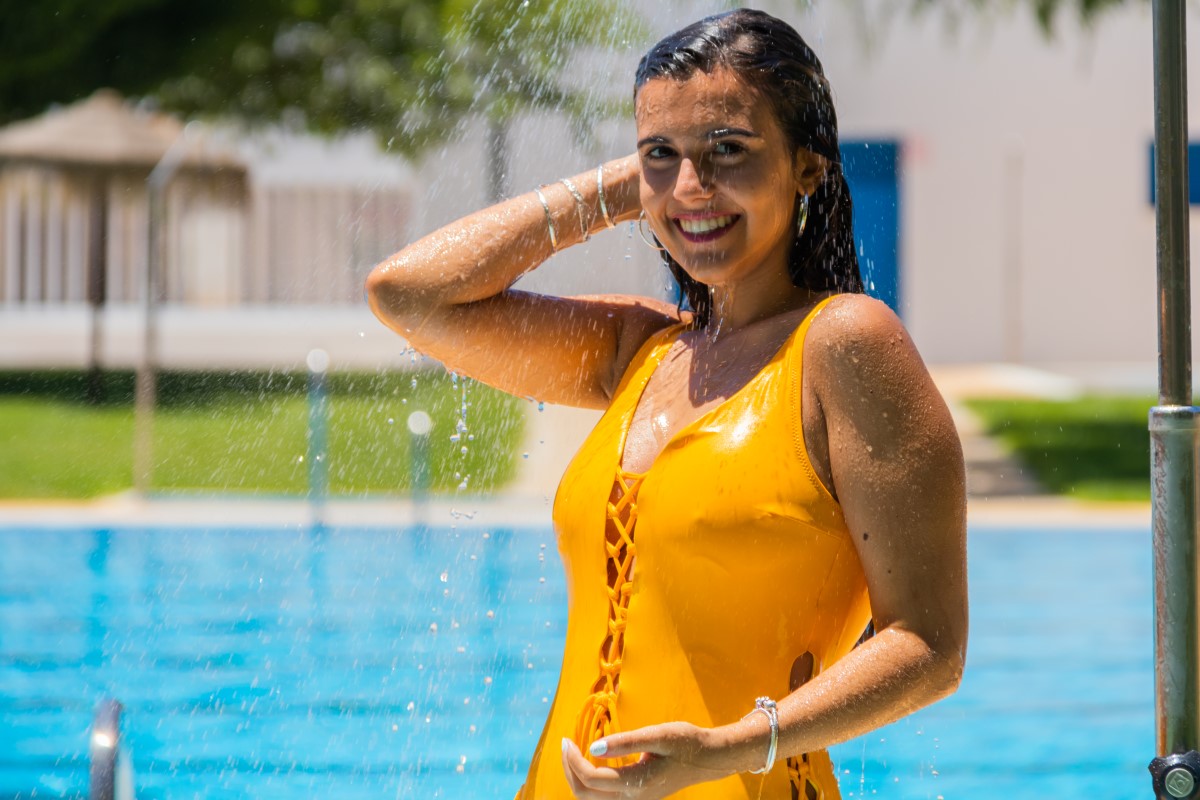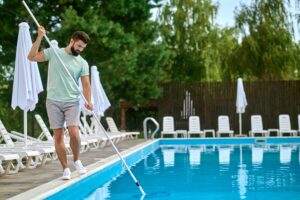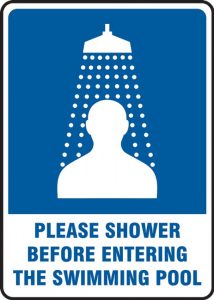
Swimming pools are ideal for exercise and relaxation. However, you can become an epicentre for germs if you do not shower before and after swimming. Recreational water illnesses such as skin infections and parasites can be spread fairly easily. All it takes is swallowing or coming in contact with contaminated water in a swimming pool.
However, showering before and after swimming can protect yourself and others from illness. The statistics say something different though. 93% of Americans would never reuse someone else’s bathwater. Sadly, 40% do not shower before entering the pool, according to the Water Quality and Health Council.
Keep your family safe this summer! AquaMobile brings you three reasons why you should shower before and after swimming!
1. Reduce the Spread of Recreational Water Illnesses (RWIs):
You should always shower before swimming. If you do not, fecal matter can easily start mixing itself into the pool water.
Something that might surprise (and disgust) people is we all have small amounts of fecal matter on our bodies any given day. On average, the U.S. Center for Disease Control and Prevention estimates that people have 0.14 grams of fecal matter on their bodies throughout the day. So you might want to avoid swallowing pool water. It can make you very sick.
Swimmers showering can combat a variety of recreational waterborne illnesses. This prevents common causes of diarrhea, skin infections and eye infections.
Using pool disinfectants such as chlorine protects us and prevents us from picking up waterborne germs. Som

The Center for Disease Control suggests that parents give their children bathroom breaks often. Children should take showers after one when swimming to avoid spreading bacteria.
thing to keep in mind is chlorine does not kill all germs right away. It works over a time period that can range from a few minutes to several days. Even with high chlorine levels, it can take up to a week to kill the harmful cryptosporidium parasite. If pool chemistry is not carefully adjusted and has many impurities, it becomes harder to kill germs in the water.
2. Combining Organic Compounds in water can negatively impact your health
Organic compounds are found in deodorants, soaps, moisturizers, sweat, detergents and fecal matter. When organic compounds are mixed with chlorinated water, by-products are created. These are gases called chloramines. Chloramines lead to that infamous chlorine smell that we think is a sign of a clean pool. Wrong! The smell of chloramine is a sign that the water is not being maintained to the highest quality. A well-managed pool should have little to no chlorine odour.
There are thing s that pool owners can do about chloramine entering the pool area. According to the CDC, air handling is one of them. These systems remove moisture, which can create chloramine. Keeping fresh air flowing into the pool area is also helpful. Even in the wintertime, there should be some flow. Increased heating costs are worth preventing patrons from being uncomfortable.
s that pool owners can do about chloramine entering the pool area. According to the CDC, air handling is one of them. These systems remove moisture, which can create chloramine. Keeping fresh air flowing into the pool area is also helpful. Even in the wintertime, there should be some flow. Increased heating costs are worth preventing patrons from being uncomfortable.
Showering sends organic compounds down the drain. This means the chlorine and pool filtration systems will not have to work as hard to prevent illnesses.
3. Post-Swim Shower Removes Bacteria

Showering after swimming is equally important.
Post-swim showers help prevent and reduce your chances of contracting recreational water illnesses. This removes contaminants that your skin came in contact with within the pool. It also removes chlorine, chloramines and bacteria from our bodies. When left on your skin, they can cause rashes or other irritations.
So how else can you stay safe?
Here are some ways to avoid picking up swimming pool illnesses:
- Shower before swimming with soap. Don’t forget your hands and back your legs!
- Take a rinse shower if you leave the pool to use the washroom
- Never swallow pool water
Remember these tips to keep your family happy and healthy this summer. A quick shower can make all the difference during your next visit to the pool!


